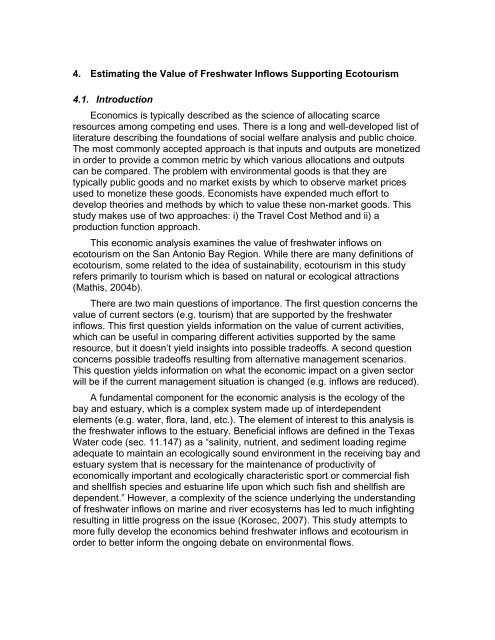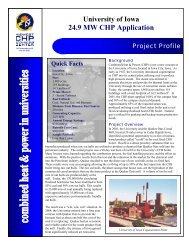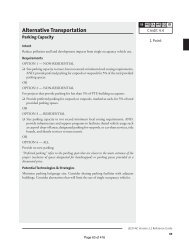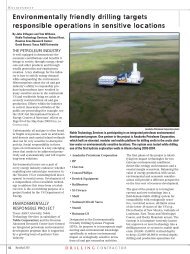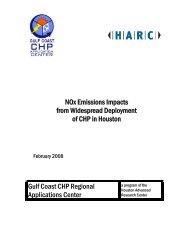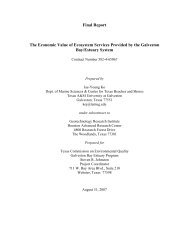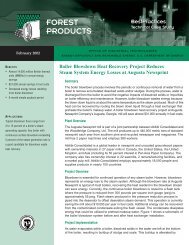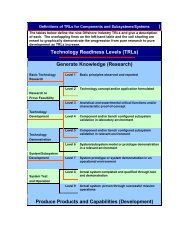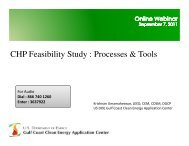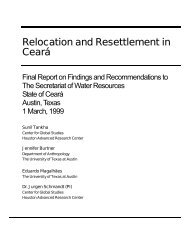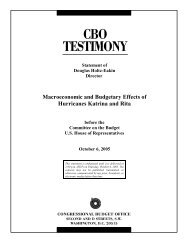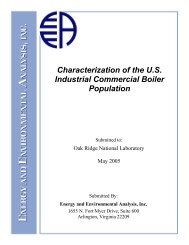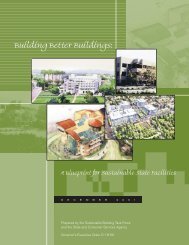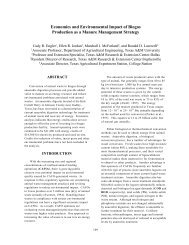The Economic Value of Water and Ecosystem Preservation
The Economic Value of Water and Ecosystem Preservation
The Economic Value of Water and Ecosystem Preservation
Create successful ePaper yourself
Turn your PDF publications into a flip-book with our unique Google optimized e-Paper software.
4. Estimating the <strong>Value</strong> <strong>of</strong> Freshwater Inflows Supporting Ecotourism<br />
4.1. Introduction<br />
<strong>Economic</strong>s is typically described as the science <strong>of</strong> allocating scarce<br />
resources among competing end uses. <strong>The</strong>re is a long <strong>and</strong> well-developed list <strong>of</strong><br />
literature describing the foundations <strong>of</strong> social welfare analysis <strong>and</strong> public choice.<br />
<strong>The</strong> most commonly accepted approach is that inputs <strong>and</strong> outputs are monetized<br />
in order to provide a common metric by which various allocations <strong>and</strong> outputs<br />
can be compared. <strong>The</strong> problem with environmental goods is that they are<br />
typically public goods <strong>and</strong> no market exists by which to observe market prices<br />
used to monetize these goods. Economists have expended much effort to<br />
develop theories <strong>and</strong> methods by which to value these non-market goods. This<br />
study makes use <strong>of</strong> two approaches: i) the Travel Cost Method <strong>and</strong> ii) a<br />
production function approach.<br />
This economic analysis examines the value <strong>of</strong> freshwater inflows on<br />
ecotourism on the San Antonio Bay Region. While there are many definitions <strong>of</strong><br />
ecotourism, some related to the idea <strong>of</strong> sustainability, ecotourism in this study<br />
refers primarily to tourism which is based on natural or ecological attractions<br />
(Mathis, 2004b).<br />
<strong>The</strong>re are two main questions <strong>of</strong> importance. <strong>The</strong> first question concerns the<br />
value <strong>of</strong> current sectors (e.g. tourism) that are supported by the freshwater<br />
inflows. This first question yields information on the value <strong>of</strong> current activities,<br />
which can be useful in comparing different activities supported by the same<br />
resource, but it doesn’t yield insights into possible trade<strong>of</strong>fs. A second question<br />
concerns possible trade<strong>of</strong>fs resulting from alternative management scenarios.<br />
This question yields information on what the economic impact on a given sector<br />
will be if the current management situation is changed (e.g. inflows are reduced).<br />
A fundamental component for the economic analysis is the ecology <strong>of</strong> the<br />
bay <strong>and</strong> estuary, which is a complex system made up <strong>of</strong> interdependent<br />
elements (e.g. water, flora, l<strong>and</strong>, etc.). <strong>The</strong> element <strong>of</strong> interest to this analysis is<br />
the freshwater inflows to the estuary. Beneficial inflows are defined in the Texas<br />
<strong>Water</strong> code (sec. 11.147) as a “salinity, nutrient, <strong>and</strong> sediment loading regime<br />
adequate to maintain an ecologically sound environment in the receiving bay <strong>and</strong><br />
estuary system that is necessary for the maintenance <strong>of</strong> productivity <strong>of</strong><br />
economically important <strong>and</strong> ecologically characteristic sport or commercial fish<br />
<strong>and</strong> shellfish species <strong>and</strong> estuarine life upon which such fish <strong>and</strong> shellfish are<br />
dependent.” However, a complexity <strong>of</strong> the science underlying the underst<strong>and</strong>ing<br />
<strong>of</strong> freshwater inflows on marine <strong>and</strong> river ecosystems has led to much infighting<br />
resulting in little progress on the issue (Korosec, 2007). This study attempts to<br />
more fully develop the economics behind freshwater inflows <strong>and</strong> ecotourism in<br />
order to better inform the ongoing debate on environmental flows.


